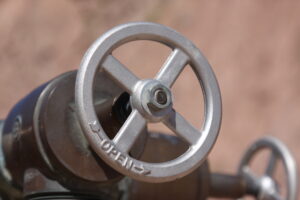Guide to Choosing Electric and Pneumatic Valve Actuators

Imagine an industrial process that operates like a well-oiled machine, with every valve opening and closing smoothly on cue. The secret behind this seamless operation? The often-overlooked valve actuators that power the entire system.
They provide the necessary mechanical force to open and close valves, which allows you to control the flow of fluids and gases. In this guide, we’ll explore the differences between electric and pneumatic valve actuators and provide insight into how to choose the right one for your application.
Keep reading as we get right into it.
Electric Valve Actuators
Electric valve actuators are known for their precision, reliability, and ease of use. You can use them for a wide range of valve types, including ball valves, gate valves, globe valves, butterfly valves, and more.
Electric valve actuators are available in various sizes, from small units suitable for actuating low-torque valves to larger units capable of generating high torque outputs for large valves.
When choosing an electric valve actuator, you’ll need to consider several factors. The torque requirements of the valve, the speed of operation, and the available power supply are all crucial considerations.
It is also important to consider the type of environment in which the valve will be used. If the environment is hazardous, an explosion-proof electric actuator may be necessary.
Here are the main advantages of electric valve actuators:
- Precision control
- High degree of accuracy
- Easy to use and maintain
- Suitable for both on-off and modulating applications
And here are a couple of the disadvantages:
- Dependence on electricity
- Higher initial cost compared to pneumatic actuators
Pneumatic Valve Actuators
Pneumatic valve actuators are powered by compressed air. We most commonly find them in industrial applications. They are known for their reliability, durability, and cost-effectiveness. Pneumatic actuators can be used for a wide range of valve types, including;
- ball valves
- butterfly valves
- gate valves
When choosing a pneumatic valve actuator, there are several factors to consider. The air pressure requirements of the actuator, the speed of operation, and the available compressed air supply are all important considerations. It is also important to consider the type of environment in which the valve will be used. If the environment is hazardous, an explosion-proof pneumatic actuator may be necessary.
Here are the main advantages of pneumatic valve actuators:
- Cost-effective
- Reliable and durable
- Easy to maintain
- Suitable for high-torque applications
And the disadvantages:
- Less precise control compared to electric actuators
- Limited speed of operation
- Dependence on a compressed air supply
How to Choose the Right Valve Actuator
When choosing the right valve actuator, there are several factors to consider. Let’s take a look at them in this section.
Valve Type
Different types of valves require different types of actuators. Make sure you choose an actuator that is compatible with the valve you are using.
Torque Requirements
The torque requirements of the valve dictate the size and type of actuator needed. Make sure you choose an actuator that can provide enough torque to operate the valve.
Speed of Operation
The speed at which the valve needs to be opened and closed is an important consideration. Choose an actuator that can operate at the required speed.
Power Source
Consider the power source available in your facility. Electric actuators require electricity, while pneumatic actuators require compressed air.
Environment
The environment in which the valve will be used is an important consideration. If the environment is hazardous, an explosion-proof actuator may be necessary.
By taking these factors into account and working with a trusted supplier like anythingflows.com, you can ensure the safe and efficient operation of your industrial valves.
Maintenance and Troubleshooting Tips for Valve Actuators
Valve actuators, like any other mechanical device, require regular maintenance to ensure optimal performance and longevity. Here are some maintenance and troubleshooting tips for valve actuators:
Regular Maintenance
Regular maintenance is crucial to the proper functioning of valve actuators. Follow the manufacturer’s recommended maintenance schedule, which may include tasks such as lubrication, cleaning, and checking for leaks.
Check for Wear and Tear
Over time, valve actuators may experience wear and tear. This can significantly affect their performance. Check for signs of wear, such as cracked or worn-out seals, and replace them as needed.
Calibration
Regular calibration of valve actuators is important to ensure accurate control of valve position. Follow the manufacturer’s recommended calibration schedule or consult with a qualified technician to perform this task.
Troubleshooting
If you experience issues with your valve actuator, such as a valve not opening or closing properly, there are several troubleshooting steps you can take. These may include checking the power supply, checking for leaks, and inspecting the valve stem for damage.
Consulting a Professional
If you are unable to troubleshoot an issue with your valve actuator, consult with a qualified technician or contact the manufacturer for assistance.
By following these maintenance and troubleshooting tips, you can ensure that your valve actuators perform optimally and have a long lifespan.
Now You Know All About Valve Actuators
Choosing the right valve actuator is essential for ensuring the safe and efficient operation of industrial valves. Whether you choose an electric or pneumatic actuator, it is important to consider the specific requirements of your application.
At anythingflows.com, we understand the importance of choosing the right valve actuator and are committed to providing our customers with high-quality products and exceptional service. Our team of experts can help you choose the right actuator for your application and provide guidance on installation and maintenance.
By taking the factors in this article into account and working with a trusted supplier like anythingflows.com, you can ensure the safe and efficient operation of your industrial valves.
So, buy valve actuators today and get your industrial process flowing smoothly! Get in touch with us today if you have any questions, or check out our blog for more helpful information and advice!
